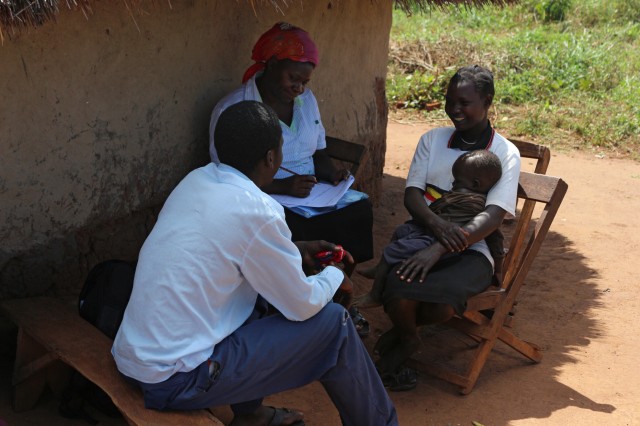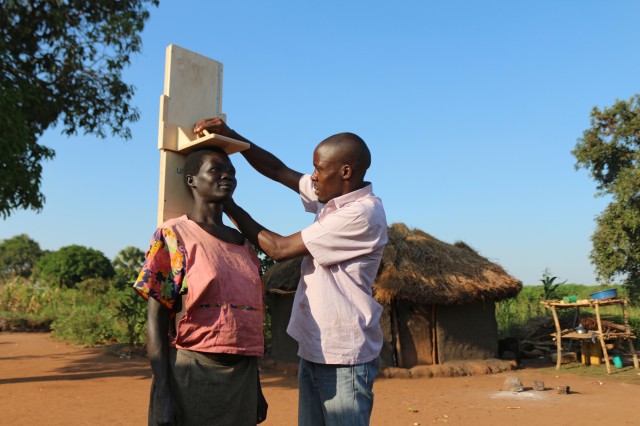
Helping to rebuild communities in northern Uganda
8th December 2013
You might remember all the attention last year on stopping Joseph Kony and the LRA. For the past two weeks I’ve been with Self Help Africa (SHA) in a region of northern Uganda that was severely affected by the conflict – in many villages, a whole generation of young adults are missing – and there are high levels of poverty. Poignantly, in one household a mother couldn’t afford to buy the life-saving drugs her malaria-suffering son needs to survive.
I’m here on behalf of Evidence for Development to assist SHA with their Community Connector project, which seeks to reduce poverty, food insecurity and under-nutrition for vulnerable communities in many districts in Uganda through improved livelihoods.
We’re collecting data that will be used to monitor the changes experienced by households as the project continues, and this will form the basis for evaluating and attempting to improve its impacts. IHM data on households’ incomes, assets and demographics will be combined with information gathered by the SHA Uganda nutrition team on hygiene, sanitation, dietary diversity and nutritional indicators (such as height and weight) for children under 5 and their mothers.

SHA Uganda’s Charles Mbiru measures a mother’s height in Oyam district, northern Uganda.
The research has also provided an opportunity for three more people to gain their IHM Level 3s. Miriam Mutenyo (pictured at the top of this page interviewing a young woman with the assistance of a local translator) from SHA Kenya achieved this, as did Stephen Kalule from the University of Gulu and Primrose Nakazibwe from Mbarara University of Science and Technology.
Stephen and Primrose are playing key roles in developing household economy methods courses for the undergraduate and postgraduate curriculums at their universities, using EfD’s teaching materials. Evidence for Development hopes to further support this educational work by funding MA bursaries for promising students at Gulu and Mbarara universities, helping to equip the next generation of local experts with skills to find new poverty-fighting solutions for their communities.
We’ve made a great start on this through the ‘Big Give’, and donations are still open – please help us to raise as much as we can and share the link with your friends to spread the word.
Categories: Capacity building, IHM, Livelihoods, Monitoring and evaluation, Nutrition and health, Post-conflict, Uganda

Comments
No comments yet.
The comments are closed.